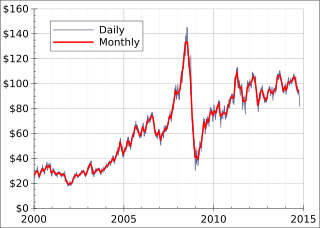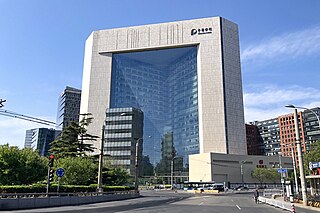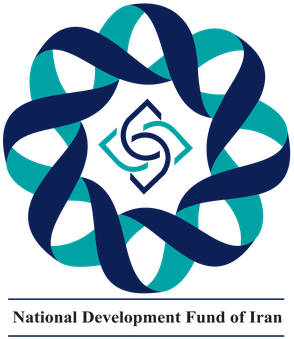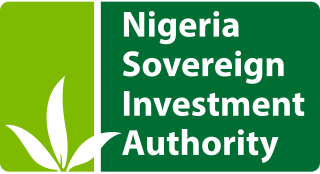The Government Pension Fund of Norway is the sovereign wealth fund collective owned by the government of Norway. It consists of two entirely separate sovereign wealth funds: the Government Pension Fund Global and the Government Pension Fund Norway.

The Abu Dhabi Investment Authority is a sovereign wealth fund owned by the Emirate of Abu Dhabi in the United Arab Emirates, founded to invest funds on behalf of the Government of Abu Dhabi. It manages the emirate's excess oil reserves and is estimated to manage $1,057 billion. ADIA is one of the largest sovereign wealth funds in the world.

GIC Private Limited is a Singaporean sovereign wealth fund that manages the country's foreign reserves. Established by the Government of Singapore in 1981 as the Government of Singapore Investment Corporation, from which the acronym "GIC" is derived, its mission is to preserve and enhance the international purchasing power of the reserves, with the aim to achieve good long-term returns above global inflation over the investment time horizon of 20 years.

The Saudi Central Bank, previously known as the Saudi Arabian Monetary Authority, established in 1952, is the central bank of the Kingdom of Saudi Arabia. Despite the name change in 2020, the Saudi Central Bank has continued to use the same acronym (SAMA).

Khazanah Nasional Berhad (lit. 'National Treasure Limited'; doing business as Khazanah Nasional or simply Khazanah) is the sovereign wealth fund of the Government of Malaysia. One of the largest sovereign wealth funds in the world, it was established to invest surplus revenues for Malaysia. Through its investments and activities, the fund seeks to deliver sustainable economic and societal benefit for the nation. This includes achieving long-term risk-adjusted returns across the portfolio, as well as undertaking investments that catalyse new growth areas, strengthen Malaysia’s economic competitiveness, and contribute to priority socioeconomic outcomes.
The Kuwait Investment Authority (KIA) is the State owned sovereign wealth fund of the State of Kuwait, managing the state's reserve and the state's future generation fund, also known as "Ajyal Fund".

The Stabilization fund of the Russian Federation was a sovereign wealth fund established based on a resolution of the Government of Russia on 1 January 2004, as a part of the federal budget to balance the federal budget at the time of when oil price falls below a cut-off price, currently set at US$27 per barrel.

A sovereign wealth fund (SWF), or sovereign investment fund is a state-owned investment fund that invests in real and financial assets such as stocks, bonds, real estate, precious metals, or in alternative investments such as private equity funds or hedge funds. Sovereign wealth funds invest globally. Most SWFs are funded by revenues from commodity exports or from foreign exchange reserves held by the central bank.

China Investment Corporation (CIC) is a sovereign wealth fund that manages part of China's foreign exchange reserves. China's largest sovereign fund, CIC was established in 2007 with about US$200 billion of assets under management, a number that grew to US$1,200 billion in 2021 and US$1,3 billion in December 2024.
The Canada Pension Plan Investment Board, operating as CPP Investments, is a Canadian Crown corporation established by way of the 1997 Canada Pension Plan Investment Board Act to oversee and invest the funds contributed to and held by the Canada Pension Plan (CPP).
The Korea Investment Corporation is a sovereign wealth fund established by the government of South Korea in 2005. Its mission is to preserve and enhance the long-term purchasing power of South Korea's sovereign wealth through efficient management of public funds in the international financial markets. KIC manages assets entrusted by the Government, the Bank of Korea, and other public funds as defined under the National Finance Act. KIC directly invests the entrusted assets or re-entrusts the assets to external managers. As of December 2024, KIC has $189.4 billion assets under management.

The National Council for Social Security Fund (SSF) is a public institution under the Ministry of Finance of China. It is responsible for the investment and operation of the National Social Security Fund.

The National Development Fund of Iran is Iran's sovereign wealth fund. It was founded in 2011 to supplement the Oil Stabilization Fund. NDFI is independent of the government's budget. Based on Article 84 of the Fifth Five-year Socio-Economic Development Plan (2010–2015), the National Development Fund was established to transform oil and gas revenues to productive investment for future generation. It is a member of the International Forum of Sovereign Wealth Funds and therefore is signed up to the Santiago Principles on best practice in managing sovereign wealth funds. Withdrawing any money from this fund requires Khamenei's permission.

The Sovereign Wealth Fund Institute is an American corporation analyzing public asset owners such as sovereign wealth funds and other long-term governmental investors. Initially, the Sovereign Wealth Fund Institute focused solely on sovereign wealth funds. It has branched out to cover all types of public institutional investors. The institute sells its subscription and API/datafeed services as a financial data vendor but provides information to the media as well.

Government Pension Investment Fund, or GPIF, is an incorporated administrative agency, established by the Japanese government. It is the largest pool of retirement savings in the world. Japan's GPIF is the largest public fund investor in Japan by assets and is a major proponent of the Stewardship Principles.

The Nigeria Sovereign Investment Authority is a Nigerian establishment which manages the Nigeria sovereign wealth fund, into which the surplus income produced from Nigeria's excess oil reserves is deposited. This sovereign wealth fund was founded for the purpose of managing and investing these funds on behalf of the government of Nigeria. The fund was established by the Nigeria Sovereign Investment Authority Act 2011, signed in May 2011, and commenced operations in October 2012. It is intended to invest the savings gained on the difference between the budgeted and actual market prices for oil to earn returns that would benefit future generations of Nigerians. The fund was allocated an initial US$1 billion in seed capital, and, an additional $0.60billion has been contributed to date by the current administration. In December 2024, the fund has US$2.4 billion in assets under management.

The Brunei Investment Agency (BIA) is a government-owned corporation that reports to the Ministry of Finance of the Government of Brunei. Established in 1983, its offices are located in Bandar Seri Begawan at the Ministry of Finance HQ. Data on the agency's assets are not reported to the public and the Sultan and his assets, to a certain degree, are also incorporated in the agency; however the extent is unknown. In December 2024, the fund has a total of US$73 billion in assets under management.

The Fundo Soberano de Angola is the sovereign wealth fund of Angola. It is a member of the International Forum of Sovereign Wealth Funds, and therefore has signed up to the Santiago Principles on best practice in managing sovereign wealth funds. The FSDEA is meant to play an important role in promoting Angola’s social and economic development and generating wealth for its people. The fund was rated by the SWFI in February 2015 with a ranking of 8 out of 10.

Bahrain Mumtalakat Holding Company B.S.C. (Mumtalakat) is the sovereign wealth fund of the Kingdom of Bahrain. It was established by Royal Decree in 2006 and is wholly owned by the Government. Mumtalakat actively sought investment opportunities locally, regionally and internationally.














